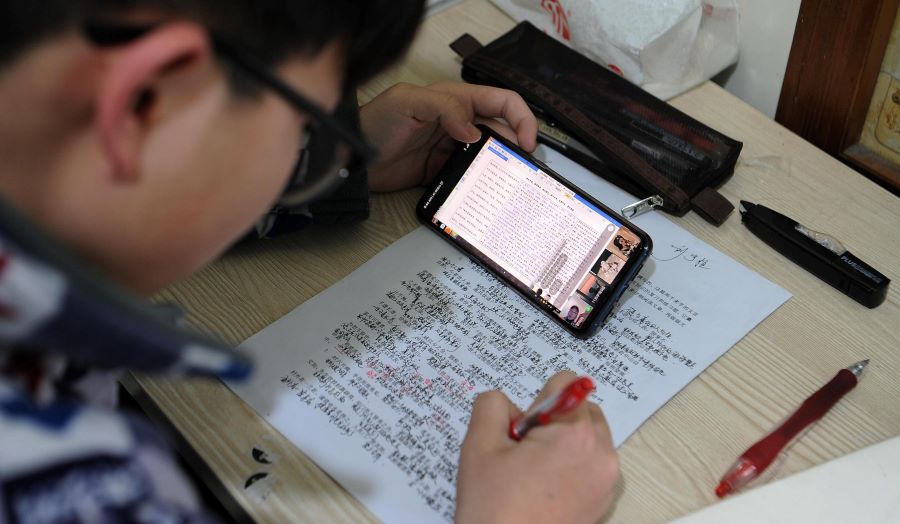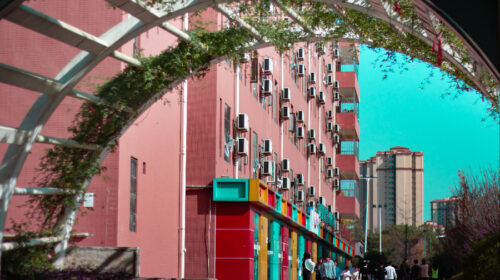Education Stocks Could Offer Bargains – For Those Who Choose Correctly

Massive selloff saw Chinese educator stocks fall as much as 70% on Friday on fears government could ban them from operating for profit
Key points:
- Latest government ‘opinion’ document could ban private after-school education companies from operating on for-profit basis
- Policy is likely to meet with industry pushback, and also protest from parents who see it as too extreme
By Doug Young
This week may look like any other for most people, but it has turned into a sudden life-or-death situation for many of China’s private education companies. The group was somewhat blindsided by a document released by the State Council at the end of last week saying that most private companies should be banned from offering educational services in core curriculum areas.
The result was a bloodbath for U.S. and Hong Kong-listed education stocks, which fell anywhere from 11% to as much as 70% in a single session on Friday.
We’ll review what’s known shortly, and how things could unfold in this rapidly developing picture. But here we’re also going to be slightly contrarian and say that while China’s private education world as we know it is about to end, it’s unlikely to disappear. That could mean some extremely good values are out there for people who want to take a gamble on which companies might emerge as new leaders from the carnage now piling up.
Again, we’ll examine this side of the story and offer some thoughts for any investors with a high appetite for risk shortly.
The bottom line is that profit-making has always had a difficult relationship with education in more-mature western markets. In most of those places, private schools are usually run by groups with religious backgrounds and are non-profit. China doesn’t really have this kind of tradition, which is partly why for-profit companies rushed to meet an inevitable demand for private education from Chinese parents.
It remains to be seen how China will meet the obvious demand for private education, if and when it actually bans for-profit institutions, since there aren’t too many western-type religious organizations to fill the vacuum in China. Accordingly, we could quite possibly see the government backtrack just a little and allow some private for-profits to continue, albeit with restrictions.
All that said, let’s review what happened at the end of last week, including which companies took the biggest hit. The big news was a government “opinion” document stating that private educators offering instruction on core school subjects should be barred from operating on a for-profit basis, according to a statement from one such player, Hong Kong-listed Koolearn (1797.HK).
Among the roughly dozen U.S.-listed Chinese education companies, three of the largest ones took the biggest hits, with TAL Education (TAL.US), Gaotu Techedu (GOTU.US) and New Oriental (EDU.US) down 71%, 63% and 54%, respectively. At the other end of the spectrum, Hailiang Education (HLG.US), Tarena (TEDU.US) and RYB Education (RYB.US) were down “just” 11%, 18% and 20%.
People who have been in China for a while know that when it comes to this kind of regulation, nothing is really ever set in stone. The government will often throw out ideas based on sentiment at the time, and in this case, that sentiment is clearly that the private education sector has gone too far and is stressing out China’s youth too much.
But then people will push back, in this case the educational institutions themselves and, perhaps equally important, the parents who want to give their children every possible edge in the country’s highly competitive school system. The fact that the latest document was an “opinion” also shows there may be room for some give-and-take. Thus, the final result will probably be a compromise that perhaps allows some for-profit activity, but with restrictions.
School Operators Less Affected
One of the groups investors are betting may be most likely to survive the crackdown could be primary school operators. Both Hailiang and RYB – two names that suffered the mildest drops last Friday – fall into that category, operating private K-12 schools for Hailiang and private kindergartens for RYB. Another company that falls into that category is China East Education (0667.HK), which operates vocational schools for adults.
China East Education, which is profitable, trades at the highest price-to-sales (P/S) ratio among the group of private educators, with a ratio of 4.6. Since most of these companies are losing money, this P/S looks like a potentially good place to gage who investors are betting on to survive the crackdown and possibly even thrive afterwards.
Hailiang, which is also profitable, trades at the next highest P/S of 3.4. That pair is followed by Youdao (DAO.US), which makes most of its money from online education courses that are the main focus of the crackdown. With a P/S of 2.6, Youdao stands out from the other companies in getting just over a third of its revenue from adult education rather than from young students whose welfare is at the heart of the crackdown.
After those, the only others with P/S ratios above 1 are industry stalwart New Oriental at 1.7, followed by recently listed Zhangmen Education (ZME.US) at 1.6 and 17 Education at 1.1. Of course we should note that these ratios can change very rapidly due to all the stock price volatility, so that a company with a high ratio today could suddenly find that figure slashed if its stock price crashes.
We’ve previously noted that the month of September is looming as a sort of “reckoning day” for this sector, as that’s when all extracurricular educators will officially be required to get permits to keep operating.
Actual school operators like China East Education, Hailiang and RYB already have such licenses, so they are probably protected from being killed off by the license requirement. Older operators like New Oriental, which does both online and traditional classroom-style education, are probably also safe since they should have the necessary permits too.
At the end of the day, China will need to be very careful about how it moves ahead. It will be wary of taking steps that result in massive closures and lead to thousands of lost jobs. And it may also be reluctant to face the huge backlash from angry parents if after-school classes are cut back too drastically.
Hence it seems quite likely that some of the best-run companies will be allowed to stay in business, and perhaps even retain for-profit status if they can convince regulators that they will behave responsibly. Now the focus will turn to which companies will be the lucky survivors.
To subscribe to Bamboo Works weekly newsletter, click here





